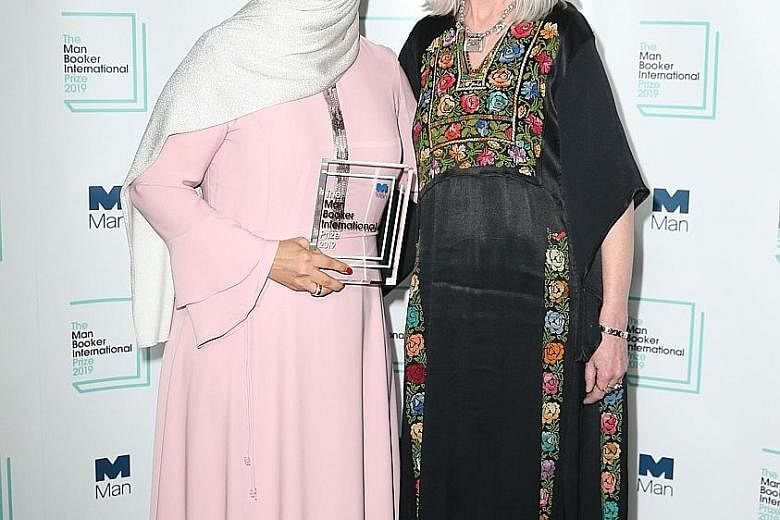LONDON • Celestial Bodies, a family saga set against Oman's transition from slave trading centre to oil producer, became the first novel originally written in Arabic to win the Man Booker International Prize on Tuesday.
The book's author, Jokha Alharthi of Oman, shares the award of £50,000 (S$87,400) with its translator, Ms Marilyn Booth.
The prize, given each year to the best book translated into English and published in Britain, is widely seen as the world's most significant award for translated fiction. It is distinct from the more well-known Booker Prize, for fiction originally published in English.
Ms Bettany Hughes, chairman of the judging panel, called Celestial Bodies "a book to win over the head and the heart in equal measure".
"Its delicate artistry draws us into a richly imagined community, opening out to tackle profound questions of time and mortality," she said in a statement announcing the award.
Alharthi's book was chosen over efforts by higher-profile names, among them Polish author Olga Tokarczuk - who won last year's prize for Flights - and Annie Ernaux, the celebrated French author.
Alharthi's novel, first published in 2010 as Ladies Of The Moon, is at times a complex book that follows an Omani family over three generations, from the 1880s to today.
"Every character - woman or man, enslaved or free - finds themselves trapped, in some way, by history" as Oman itself changes around them, Marcia Lynx Qualey wrote in a review for The National, a newspaper based in the United Arab Emirates.
The book is "a beautifully achieved account of lives pulling at the edges of change", Michael Cronin wrote in The Irish Times, adding that it also "deftly undermines recurrent stereotypes about Arab language and cultures".
Jane Housham, writing in The Guardian, said although the number of characters was bewildering at times, "the glimpses into a culture relatively little known in the West are fascinating".
Alharthi said in an interview published on the Man Booker International Prize's website that Omani authors want foreign readers to look at the country "with an open mind and heart".
"No matter where you are, love, loss, friendship, pain and hope are the same feelings," she said, "and humanity still has a lot of work to do to believe in this truth."
Five of the six authors, and all the translators, on this year's shortlist were women - an unusually high number for a book prize.
Female authors accounted for 31 per cent of new works translated into English and published in the United States in 2017, Ms Meytal Radzinski, founder of Women In Translation Month, said in an e-mail.
The Booker International shortlist showed that things were changing, Dr Helen Vassallo, an academic at the University of Exeter who studies translation and gender, said in a telephone interview.
Translators are commissioned for works, but have also recently pushed some female authors, she added. "They're these really passionate people championing works that have changed their lives," Dr Vassallo said. "They're doing massive amounts of work behind the scenes."
Ms Booth, translator of Celestial Bodies, said in an interview for the prize's website that the "vivid use" of local expressions and classical Arabic poetry made translating the novel an "enormous challenge".
But the book shows what imaginative writing is happening across the Arab world, she said, even in a country "that is less literarily mapped" like Oman.
These books are art that is "pushing the boundaries of what can be thought and said", she added.
NYTIMES
• Celestial Bodies ($22.20) is available at Books Kinokuniya.

